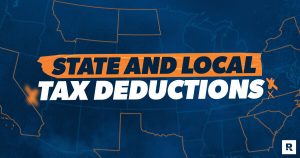Key takeaways
- Wells Fargo and Bluevine both offer a limited range of small business financing options
- Choose Wells Fargo for SBA loans
- Choose Wells Fargo and Bluevine for business lines of credit
Both Wells Fargo and Bluevine cater to a wide range of borrowers and businesses, but depending on what they’re seeking, one may be a better fit.
Wells Fargo’s business lending options, which are perfect for established businesses with good-to-excellent credit, include SBA loans and business lines of credit. Like Wells Fargo, Bluevine offers a business line of credit, but it is designed for fair-credit businesses with stable income.
We’ll explore and compare business financing options from Wells Fargo and Bluevine.
Wells Fargo vs. Bluevine at a glance
If you take a look at how the two lenders compare, you’ll see Bluevine has a lower credit requirement at 625 compared to Wells Fargo’s 680. But Wells Fargo’s terms of up to 25 years mean borrowers can enjoy long-term financing with low monthly payments. With either option, borrowers looking for financing under $100,000 and those interested in borrowing more can get their funding needs met.
| Wells Fargo | Bluevine | |
|---|---|---|
| Bankrate Score | 4.2 | 4.4 |
| Best for | SBA loans | Business lines of credit |
| Number of loan products | 4 | 2 |
| Loan amounts | $5,000 to $10 million | Up to $250,000 |
| Interest rates | 9.00% to 18.25% APR | 6.20% Simple interest |
| Term lengths | Up to 25 years | 6 or 12 months |
| Personal credit score | 680 | 625 FICO for 6-month terms 700 FICO for 12-month terms |
| Minimum time in business | Under two years | 2 years |
| Minimum business revenue | Not stated | $480,000 for 6-month terms $960,000 for 12-month terms |
Wells Fargo business loans
Wells Fargo is a well-known, traditional bank offering a few different business financing options nationwide, including secured and unsecured business lines of credit and SBA loans, specifically 7(a) and 504 loans. These options come with substantial loan amounts ranging from $5,000 to $10 million and extended repayment terms of up to 25 years.
Moreover, as an SBA Preferred Lender, Wells Fargo can make in-house credit decisions, potentially expediting SBA loan processing, approval and funding for businesses.
Pros
- SBA Preferred Lender
- Lengthy loan terms
- Variety of business lines of credit
Cons
- Limited range of products
- Personal guarantee
- Annual fee
Bluevine business loans
Bluevine is a fintech company specializing in providing financing to small businesses. Its product range includes business lines of credit and term loans, with the latter available through lending partners. Both options provide up to $250,000 in funding, but business lines of credit offer short-term business financing of 6 months with weekly payments and require $480,000 in annual revenue and a credit score of 625. Terms of 12 months are also available with monthly payments but require $960,000 in annual revenue and a credit score of 700.
The lender’s line of credit offers quick access to working capital for fair-credit businesses, but its high annual revenue requirement might exclude businesses earning less than $40,000 monthly. And while Bluevine could be a great fit for qualifying businesses, its lines of credit are not available in all 50 states.
Pros
- Fast funding
- Low credit score requirement
- No origination fee or prepayment penalties
Cons
- High annual revenue requirement
- Limited range of small business financing options
- High interest
How to choose between Wells Fargo and Bluevine
Wells Fargo and Bluevine provide different benefits, so choosing the best lender may not be as hard for some borrowers.
Wells Fargo and Bluevine offer business lines of credit, but Bluevine stands out as it caters to fair credit borrowers with scores as low as 625. Bluevine’s streamlined application process also means funding can be received in as little as 24 hours, whereas traditional banks, like Wells Fargo, often take significantly longer.
Borrowers with good-to-excellent credit may find Wells Fargo business lines of credit more appealing due to the lower interest and longer terms.
Choose Bluevine and Wells Fargo for business lines of credit
Bluevine and Wells Fargo are great options for business lines of credit, but the best line of credit will depend on your needs and each lender’s requirements. Bluevine’s flexible credit score requirements make it accessible to fair-credit businesses, and the lender’s fast funding and high loan amounts also stand out to those seeking short-term financing.
If you have good-to-excellent credit, Wells Fargo has more variety with its business lines of credit. They offer unsecured lines, an SBA-backed line and lower interest lines that can help a wider range of businesses for longer terms than with Bluevine.
In contrast to other online lenders and fin-tech companies, Bluevine also gives its borrowers a break when assessing fees. For example, if you pay off your balance early, you won’t face prepayment penalties, which saves you money on the total cost of borrowing.
As Wells Fargo doesn’t disclose information on fees or revenue requirements, you’ll want to contact a representative directly to learn more if you’re interested in applying.
Choose Wells Fargo for SBA loans
Wells Fargo is an excellent choice if you’re seeking an SBA loan. According to the SBA weekly lending report, it has a track record of high 7(a) loan approvals and can provide support throughout the loan application process.
Additionally, as a member of the SBA’s Preferred Lender Program, Wells Fargo can streamline the loan application process, expediting approvals and funding, which benefits businesses seeking timely financing.
Bankrate insight
Choose Bluevine for term loans
Bluevine’s term loans offer swift access to up to $250,000 in financing for businesses. With a quick application and decision process, they can get funding in just 24 hours. Bluevine isn’t a direct lender for term loans, so applicants qualify and receive funding offers through Bluevine’s network of lending partners.
Upon acceptance of a loan offer from one of these partners, you’ll directly manage your loan with them. And with the predictable repayment schedules spanning up to 24 months, this allows better loan management and better financial planning.
Alternatives
Neither Wells Fargo nor Bluevine may align perfectly with your business needs and qualifications, so consider exploring alternative lenders.
For example, if you’re seeking an SBA loan but need access to more than $10 million, Live Oak Bank can approve SBA loans up to $15 million, and it is also an SBA Preferred Lender.
There are also other choices for a business line of credit with more flexibility for fair credit borrowers. OnDeck offers lines of credit up to $250,000. Terms range from 12 to 24 months, and approval only requires one year in business and an annual revenue of $100,000, potentially making it a good fit for startups or newer businesses.
For term loans offered directly through the lender rather than partners, consider Accion Opportunity Fund or U.S. Bank. With Accion Opportunity Fund, businesses can secure up to $250,000 in funding and terms of 12 to 60 months. U.S. Bank term loans offer funding up to $1 million and terms up to 84 months, making it ideal for businesses seeking significant long-term financing.
Also, if an SBA loan or business line of credit isn’t right for you, don’t forget to consider other types of business financing options, such as business credit cards, which are ideal for managing short-term expenses while building business credit and earning rewards.
Bottom line
Wells Fargo and Bluevine cater to different types of businesses. If you’re interested in a short-term business loan, Bluevine could be perfect. But if you want a long-term financing option with low interest, Wells Fargo is a great alternative.
While both lenders have advantages, it’s important to carefully assess your business’s needs, goals and qualifications when choosing the best lender and small business loan for you.
Frequently asked questions
-
Bluevine considers borrowers with credit scores as low as 625.
-
Wells Fargo does not disclose its minimum credit score requirement for SBA loans but requires a credit score of at least 680 for other business financing options.
-
Bluevine’s lending requirements are a bit more flexible than traditional lenders, but approval still depends on several factors, including annual revenue, personal credit score and time in business.
Read the full article here










